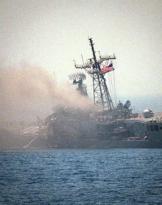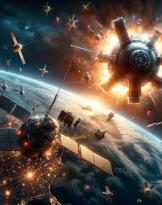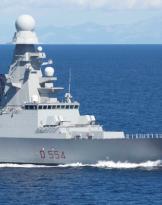The German tank Leopard 2 it is one of the military means requested by Ukraine to face the Russian offensive currently underway in Bakhmut, in the Donbass, and on the southern front towards Zaporizhia. The German reluctance to direct delivery of the Leopard 2 sparked a heated technical-military and political debate around the European and US military supplies to be allocated to Ukraine and it is also, in substance, a reflection on theimportance of the "time factor" in the war being fought between Kiev and Moscow.
Time is connected to the capacity that a belligerent has to bear the "waste of resources" that war imposes and, contextually, to replace the losses in terms of men and weapons all the more rapidly as the conflict reaches a escalation.
When time counts, connected to the degree of pressure exerted on the enemy line-up, the battle that is unleashed is, inevitably, a materialslacht of Jungerian style.
Despite the successes in the field of the previous months, Ukraine objectively has a lower capacity to absorb and amortize the losses suffered than Russia. In fact, when the Russians increase military pressure in certain sectors of the front, as in the case of the victorious first battle of Donbass last spring or the one currently being fought along the defensive arc that hinges on Kramatorsk, the Ukrainians they get into trouble. The particular relationship between defense/reaction time and losses may seem like a mathematical formula linked to the reasoning of the Jominian school, but it is a consequential logic of industrial warfare.
In a "battle of materials" such as the one being fought in the Donbass, victory inevitably goes to the contender who has the superior ability to throw as many resources into the cauldron as possible, quickly and better by managing the replacement of losses. Russia's objective advantage in purely numerical terms explains the strategic and political urgency for Ukraine to obtain the required weapons from the Western allies in a short space of time.
Related to this is the debate about Leopard which also highlights, should it still be needed, the importance of traditional "line weapons" in conventional warfare.
The Ukrainian president Volodymyr Zelensky made it clear after the Rammstein summit that the duration of the Ukrainian resistance in Donbass is commensurate with the speed with which the Europeans and the United States will supply the arsenals of Kiev with the required weapons, on all tanks, long-range missiles and field artillery systems.
The debate over Germany's supply of tanks Leopard 2 it also reveals the underground clash between the US "activists" and members of the "NATO of the East" and the "prudent" Germans, opposite poles of the way of interpreting support for Kiev in the West. The issue has come out of the military enclosure to transform itself into a political case capable of redefining relations between Washington and Berlin. At first, Scholz's government secretly expressed its misgivings about a direct supply of Leopard 2 to Ukraine, agreeing, however, to the cession of the tanks by Poland and to the training on its territory of Ukrainian soldiers. On 24 January, however, advances emerged in the German press of Berlin's consent to the delivery of 15 wagons Leopard 2 to Ukraine. It is not the first time that Germany has shown all its ambiguity towards Ukraine, now in difficulty, and therefore also towards Russia.
Part of the Polish press, interpreting the wishes and thoughts of its government, accused Germany of hiding its head in the ground like ostriches with respect to the "transformation" (a confirmation for Warsaw) of the Russian geopolitical paradigm in an aggressive key.
It is more than likely Washington's choice to send its tanks Abrams Books (decision with a strong political significance which, however, may have a slightly lesser effect on the field given the timing for the delivery of the tanks and training of the Ukrainian personnel) conditioned Berlin just enough to push Scholz's government to give the green light when sending Leopard 2. This, however, does not fully explain why Germany has agreed – albeit with all the reluctance of the case – to cede its tanks to Ukraine.
In fact, to understand Berlin's see-saw line on the issue Leopard, it is necessary to make a more general reflection on the impact of the war in Ukraine on German foreign policy, called into question precisely by the ongoing conflict.
Indeed, it is undeniable that on February 24, 2022, when Russian troops crossed the Ukrainian border and started the war that is still going on, history changed. War has returned to Europe, history in the old continent has not ended as Francis Fukuyama had erroneously predicted, the US-led liberal international order is now clearly under attack by two revisionist powers, Russia and China, and polarization is , consequently, returned to the center of the dynamics that regulate the systemic functionality of international relations.
The polarization of the international system obliges the partners and allies of the hegemonic powers to take a clear position on the strategic questions concerning the blocs they belong to, without half measures, without leaving too much room for the "creative sphere" of national foreign policies which, if be tolerated and in some cases encouraged in periods of systemic stability and even tension, when the actual conflict arrives, that is when the cannon thunders and ceases to be a threat but a reality, inevitably sees its borders narrow.
Germany, which has a too pronounced "creative sphere" of its foreign policy, found itself in difficulty at the outbreak of the war in Ukraine since it had to provide, even in a rather short time, for a "restructuring" of its international coordinates. An unsuccessful operation as even today Germany is accused of having a conduct that at best is considered "ambiguous" towards Russia. The same suspension of North Stream 2 (the main creation of the golden age of bilateral relations between Germany and Russia inaugurated by the most Russophile of German chancellors, Gerhard Schröder), announced on 22 February precisely in anticipation of the Russian attack on Ukraine, which seemed to be a radical act of protest by the Berlin government against Moscow, was in fact a choice dictated by Realpolitik to safeguard the pipeline - and with it the prospects of the energy market between the two countries - from the political and economic effects of the war.
Although it was not an obvious or simple choice, so much so as to prompt more than a few analysts to speak of the end of "Merkelism", and therefore of an "open-minded" German foreign policy towards Putin's Russia and marked by a revival of the old Ostpolitik, to suspend the authorization of the North Stream 2, as well as the position of support towards Ukraine taken by Berlin, were not decisions that fully convinced the United States and NATO in general of the "holding" of the Atlanticist line in Germany at a time when the tug of war with Moscow it would have exacerbated the fluctuations of the energy market, causing very heavy repercussions on the internal economy of the country.
After all, the strategic model of Russia, a neologism coined by Salvatore Santangelo, which was born on the wave of the intrinsic political, economic and even military bond that has kept Germany and Russia together throughout history, has always constituted a great question on the determination of the geopolitical balance of the old continent with which every power has had to confront itself.
Since the 700th century, Germany has played the role of "modernizer" of the Tsarist Empire and Bismarck had identified Russia as the other important cornerstone of European stability together with Germany, without forgetting that the USSR and the Weimar Republic had been able to maintain a strong bond and that during the cold war theOstpolitik by Willy Brandt had helped lay the foundations for the reunification process between the FRG and GDR. The Russian-German partnership policy of Schröder and Merkel had basically followed the Fil rouge of Berlin's diplomatic tradition, but then, betting erroneously on the guarantees of stability given by the US-led unipolar world, when the heated confrontation between the US and Russia returned in grand style, Germany found itself crushed in the middle and had to give proof of his Atlanticism. Test not passed with full marks, otherwise Germany would not be continuously accused by the NATO allies of being far too soft with Moscow, even more so now that the Ukrainian troops are once again in danger of entering a phase of "tactical crisis" due to the maximum concentration of the enemy effort on their defensive lineup.
Photo: US Army












